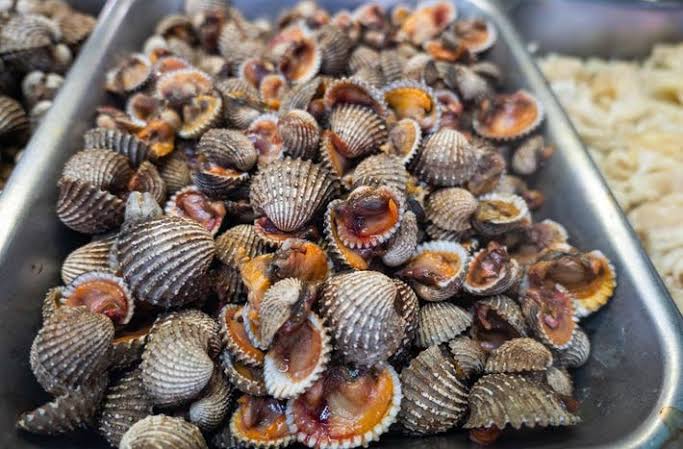The Hydrocarbon Pollution Remediation Project (HYPREP) has announced plans to restore bloody cockles in Ogoni creeks to alleviate the environmental and economic challenges faced by the local communities.
In a statement on Monday in Abuja, HYPREP Project Coordinator, Prof. Nenibarini Zabbey, highlighted the initiative, which follows his recent visit to the Nigerian Institute of Oceanography and Marine Research in Buguma, Asari-Toru Local Government Area. The institute is currently conducting research funded by HYPREP on the culturing of bloody cockles (Senilla senilis).
Vital role of bloody cockles
Bloody cockles, a species of bivalve mollusks found in muddy intertidal zones, are critical to the livelihoods and nutrition of coastal communities.
“Bloody cockle has a high nutritional value as it is a complete source of protein, containing essential amino acids ranging from 85% to 95%,” Prof. Zabbey explained.
However, oil spills and human activities in Ogoni have critically endangered these mollusks, wiping them out from most shoreline areas.
Artificial propagation efforts
HYPREP is spearheading efforts to artificially propagate bloody cockles in controlled environments before reintroducing them to the Ogoni shoreline.
“Understanding the species’ reproductive biology is essential to determining the renewal capacity of natural stocks,” Zabbey said, emphasizing the scientific foundation of the project.
The initiative aligns with HYPREP’s broader mandate to restore the environment and support keystone species such as bloody cockles, oysters, and other seafood critical to the region’s economy and food security.
Focus on sustainability
Zabbey noted that adopting artificial propagation is currently the most sustainable approach due to environmental conditions that hinder natural reproduction in large numbers.
He expressed optimism about the project’s potential to benefit not just Ogoni but other coastal communities in the Niger Delta and beyond.
“This initiative will revive a resource that has sustained the livelihoods of our people, especially women and children, for centuries,” he said.
Support for research efforts
During his visit, Zabbey commended the research team for their initial successes and donated microscopes and other essential items to enhance their work.
“This is a commendable start, and I urge the team to sustain these efforts to restock the bloody cockles,” he said.
The restoration of bloody cockles represents a significant step toward ecological recovery and economic revitalization for Ogoni and other coastal communities impacted by hydrocarbon pollution.


